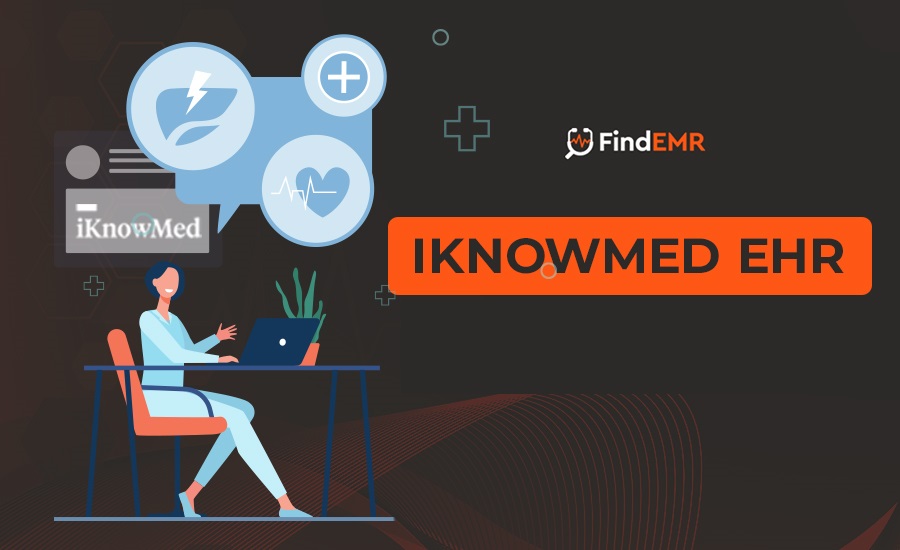Health
When do Doctors recommend Piles Surgery?

Pile surgery is a common procedure, although it might be unclear to most people what the procedure is and when it would be advised. This blog article will give insight into piles treatment, detailing how it is performed and when it is necessary to get a piles surgery.
What are Piles?
Piles (haemorrhoids) are generally described as swellings that occur inside and around the anal canal.
Piles are very common. It is estimated that 50% of people will have piles at some stage in their life, although only a small number will need treatment. Piles often cause no problems but can cause bleeding when you relieve your bowels. You may also experience pain, itchiness and a feeling of heaviness or fullness around your anus. In severe cases, piles can prolapse (hang down) through the anal canal.
What are the Causes of Piles?
There are many possible causes of piles, but the most common cause is chronic constipation or other conditions that cause frequent straining during bowel movements. Other possible causes include an inherited tendency toward weak vein walls, pregnancy (due to the increased pressure on veins in the pelvis), and a sedentary lifestyle. Obesity may also contribute to the development of piles by increasing the pressure on veins in the pelvis and abdomen.
What are the Symptoms of Piles?
Several symptoms are associated with piles, which can vary depending on the severity of the condition.
- The most common symptom is bleeding during or after bowel movements, resulting from anal fissures (tears in the anal canal) or haemorrhoids.
- Other symptoms include pain during bowel movements, itching and irritation around the anus, and faecal incontinence.
- In some cases, piles can also lead to prolapse, where the rectum or anal canal falls out of place.
If you experience any of these symptoms, it’s important to see your doctor for an accurate diagnosis.
When is Piles Surgery Necessary?
Pile surgery is generally only necessary if other treatments, such as creams and ointments, haven’t worked. However, your doctor may also recommend surgery if your piles are particularly large or painful. Surgery for piles can be done using different techniques, depending on the severity of your condition.
Your doctor will usually only recommend surgery if:
- Your piles are huge and prolapsed (hanging down from the anal canal)
- You have persistent bleeding from your piles
- Your piles are very painful, and you’re not getting relief from other treatments
- You have a blood clot in your piles (thrombosed piles)
Also, Read: The Role Of Testosterone In Men’s Health
Types of Piles Surgery
There are several types of surgeries for haemorrhoids, and each type has its own benefits and risks.
- Anal Fistula Surgery: This is the most common type of surgery for haemorrhoids. It involves cutting out the anal fistula, and the small canal drains urine from the rectum to the outside of the body. The surgeon will also cut away any surrounding tissue that is infected or diseased.
- Hemorrhoidectomy: This surgery is used to remove larger haemorrhoids. The surgeon will make an incision in the anus and remove the haemorrhoid.
- Laser Surgery: This type of surgery uses a laser to remove hemorrhoids. It is less invasive than other types of surgery, but it may not be as effective in treating large hemorrhoids. However, it is currently the most popular piles treatment because of its minimal bleeding risk.
- Rubber Band Ligation: This surgery involves placing rubber bands around the base of the haemorrhoid to cut off its blood supply. The rubber band will eventually fall off, taking the haemorrhoid with it.
- Sclerotherapy: This surgery involves injecting a solution into the haemorrhoid to shrink it.
Benefits of Piles Surgery
Surgery may be the best option when dealing with the discomfort of piles. Here are some of the benefits of undergoing piles surgery:
- Relief from pain and bleeding: Piles surgery often successfully relieves the pain and bleeding associated with piles.
- Improved quality of life: Many people who have undergone piles surgery report an improvement in their quality of life. Post-surgery they no longer have to deal with the discomfort caused by piles.
Where Can You Get the Best Piles Treatment in India?
The General & Minimal Access Surgery Department at Nanavati Max in India offers the best piles surgery in the country. This department is headed by Dr Manmohan M. Kamat, a well-renowned surgeon for his work in this field. In addition, the hospital has a team of highly skilled and experienced surgeons and doctors who are highly experienced in treating piles.
Conclusion If you think you might have piles, it’s important to see a doctor so they can diagnose the problem and recommend the best course of treatment. If surgery is required, don’t worry – it’s a relatively simple procedure that can relieve your symptoms and helps you get back to your normal life.

Health
Nourish Your Life Today And Expand Your Life Span in 2024

In a world that often demands more than it gives, finding ways to nourish your life can lead to a more fulfilling and balanced existence. Nourishment goes beyond the food we eat; it encompasses our mental, emotional, and physical well-being. To truly nourish your life, it’s essential to cultivate habits and practices that promote overall health and happiness. This comprehensive guide will explore various strategies to help you nourish your life in every aspect.
1. Understanding True Nourishment
What Does It Mean to Nourish Your Life?
Nourishing your life means providing the necessary sustenance for your body, mind, and soul to thrive. It involves adopting a holistic approach that includes healthy eating, mental well-being, emotional balance, and physical fitness.
The Importance of Holistic Well-being
Holistic well-being recognizes the interconnectedness of the different aspects of our lives. By addressing all areas—physical, mental, emotional, and spiritual—we can achieve a state of harmony and balance.
2. Nourishing Your Body
Balanced Nutrition
Eating a balanced diet rich in fruits, vegetables, whole grains, lean proteins, and healthy fats is fundamental to nourishing your body. These foods provide essential nutrients that support overall health and vitality.
Hydration
Staying hydrated is crucial for bodily functions, including digestion, circulation, and temperature regulation. Aim to drink at least 8 glasses of water daily and adjust based on your activity level and environment.
Regular Exercise
Incorporating regular physical activity into your routine helps maintain a healthy weight, boosts energy levels, and improves mood. Choose activities you enjoy, such as walking, cycling, swimming, or yoga.
Adequate Sleep
Quality sleep is essential for physical health and cognitive function. Establish a consistent sleep routine and aim for 7-9 hours of sleep per night to ensure your body can rest and repair.
3. Nourishing Your Mind
Continuous Learning
Keeping your mind active through continuous learning helps maintain cognitive function and mental agility. Engage in activities like reading, puzzles, learning a new skill, or taking up a hobby.
Mindfulness and Meditation
Practicing mindfulness and meditation can reduce stress, enhance focus, and promote emotional stability. Start with a few minutes each day and gradually increase the duration as you become more comfortable.
Mental Health Support
Seeking support for mental health issues is crucial. Therapy, counseling, and support groups can provide valuable resources for managing stress, anxiety, depression, and other mental health conditions.
4. Nourishing Your Emotional Health
Building Resilience
Resilience is the ability to bounce back from adversity. Cultivate resilience by developing a positive outlook, practicing self-compassion, and maintaining a strong support network.
Emotional Expression
Expressing emotions in a healthy way is vital for emotional health. Journaling, talking to a friend, or engaging in creative activities like art or music can help process and express feelings.
Healthy Relationships
Building and maintaining healthy relationships contribute significantly to emotional well-being. Invest time in nurturing connections with family, friends, and loved ones.
5. Nourishing Your Spirit
Finding Purpose and Meaning
Having a sense of purpose and meaning in life is essential for spiritual nourishment. This can come from work, hobbies, volunteering, or other activities that provide a sense of fulfillment.
Spiritual Practices
Engaging in spiritual practices, whether through religion, meditation, or personal reflection, can enhance your sense of connection and inner peace.
Nature Connection
Spending time in nature can be incredibly grounding and rejuvenating. Activities like hiking, gardening, or simply sitting in a park can foster a deeper connection with the natural world.
6. Practical Steps to Nourish Your Life
Setting Goals
Set realistic and achievable goals that align with your values and passions. Having clear goals gives direction and purpose, motivating you to make positive changes.
Creating a Routine
Establishing a daily routine that includes time for self-care, work, and leisure helps create balance. Consistency in your routine can lead to better habits and improved well-being.
Self-Care Practices
Self-care involves taking deliberate actions to care for your physical, mental, and emotional health. This could include activities like taking a relaxing bath, reading a book, or practicing yoga.
7. Overcoming Barriers to Nourishment
Time Management
One of the biggest challenges to nourishing your life is finding the time. Prioritize your well-being by scheduling time for activities that nourish you, and learn to say no to commitments that drain your energy.
Staying Motivated
Maintaining motivation can be difficult. Surround yourself with supportive people, track your progress, and celebrate small victories to stay motivated on your journey.
Access to Resources
Access to resources like healthy food, fitness facilities, and mental health support can be a barrier. Explore community resources, online programs, and affordable options to overcome these challenges.
8. The Benefits of a Nourished Life
Improved Physical Health
Adopting nourishing habits can lead to better physical health, including increased energy levels, improved immune function, and reduced risk of chronic diseases.
Enhanced Mental Clarity
Nourishing your mind through continuous learning and mental health support can enhance cognitive function, memory, and mental clarity.
Greater Emotional Stability
Practicing emotional expression and building resilience can lead to greater emotional stability, reducing stress and improving overall mood.
Deeper Spiritual Connection
Engaging in spiritual practices and finding purpose can lead to a deeper sense of connection and inner peace, enriching your life experience.
Conclusion
Nourishing your life is an ongoing journey that requires intentional effort and commitment. By addressing all aspects of well-being—physical, mental, emotional, and spiritual—you can achieve a balanced and fulfilling life. Remember, small, consistent changes can lead to significant improvements in your overall well-being.
FAQs
1. How can I start incorporating mindfulness into my daily routine?
Begin with short sessions of mindfulness meditation, focusing on your breath and being present in the moment. Gradually increase the duration and try to incorporate mindfulness into everyday activities like eating and walking.
2. What are some affordable ways to improve personal well-being?
Affordable ways to improve well-being include practicing yoga at home, using free health apps, engaging in outdoor activities, and connecting with supportive communities online or locally.
3. How does wearable technology benefit personal well-being?
Wearable technology helps track physical activity, monitor sleep patterns, and provide health insights, enabling individuals to make informed decisions about their well-being and maintain healthy habits.
4. What are some effective stress management techniques?
Effective stress management techniques include mindfulness meditation, deep breathing exercises, physical activity, journaling, and spending time in nature.
5. How can I maintain a work-life balance?
Maintain a work-life balance by setting boundaries, prioritizing tasks, taking regular breaks, and ensuring time for personal activities and relaxation. Flexible working conditions and ergonomic workspaces also help in achieving this balance.
Health
How Europeans can use surrogacy in Ukraine to find their happiness

Surrogacy has emerged as a viable option for individuals and couples across the globe facing challenges with conception or pregnancy. Among the countries offering surrogacy services, Ukraine has gained prominence as a popular destination, attracting prospective parents from Europe and beyond. In this comprehensive guide, we delve into the landscape of surrogacy in Ukraine, providing insights, considerations, and essential information for European individuals and couples exploring this pathway to parenthood.
The Legal Landscape of Surrogacy
One of the primary draws of surrogacy in Ukraine for European intended parents is its favorable legal framework. Ukrainian legislation permits surrogacy arrangements, providing a clear legal pathway for establishing parental rights. The country’s laws prioritize the rights of intended parents, ensuring that they are recognized as the legal parents of the child born through surrogacy, with the surrogate and her husband (if applicable) relinquishing all parental rights.

Medical Expertise and Infrastructure
Ukraine boasts a robust medical infrastructure and a wealth of fertility clinics with advanced technologies and experienced professionals specializing in assisted reproductive techniques. Prospective parents can access comprehensive medical evaluations, fertility treatments, and surrogacy services tailored to their specific needs.
Surrogacy in Ukraine: Affordability and Accessibility
Compared to surrogacy options in other European countries or the United States, surrogacy in Ukraine is often more affordable, making it an attractive option for European individuals and couples seeking cost-effective alternatives. The relatively lower cost does not compromise the quality of medical care or legal protections, offering a compelling value proposition for prospective parents.
Ethical Considerations
While Ukraine provides a conducive legal and medical environment for surrogacy, prospective parents should approach the process with ethical considerations in mind. It is essential to prioritize the well-being and rights of all parties involved, including the surrogate, egg donor (if applicable), and the child. Open communication, transparency, and respect for the autonomy and dignity of the surrogate are paramount throughout the surrogacy journey.
Cultural and Logistical Factors of Surrogacy
European intended parents embarking on the surrogacy journey in Ukraine may encounter cultural and logistical differences. Understanding and navigating these nuances, including language barriers, cultural norms, and logistical arrangements, are integral to ensuring a smooth and successful surrogacy experience.
Surrogacy in Ukraine offers European individuals and couples a promising pathway to parenthood, combining legal clarity, medical expertise, affordability, and accessibility. By familiarizing themselves with the legal framework, medical infrastructure, ethical considerations, and cultural aspects of surrogacy in Ukraine, prospective parents can make informed decisions and embark on their journey to building a family with confidence and peace of mind.
Health
iKnowMed Generation 2 EHR for Community-Based Cancer Centers

The iKnowMed EHR team is committed to providing superior customer service for community-based providers, helping them meet Meaningful Use requirements and maximize the incentives provided by MIPS. In 2015, nearly 90 percent of practices that used iKnowMed as their EHR were successful in attesting to Meaningful Use. These practices received over $6.9 million in incentive payments, and the iKnowMed team aims to continue to improve its customer service and product offerings.
iKnowMed Generation 2
The iKnowMed EHR was built with the unique needs of community-based cancer centers in mind. It enables practices to maximize Meaningful Use incentives while providing a seamless patient experience. In addition to its comprehensive features, the system helps practices meet Meaningful Use stages one and two. It also supports Meaningful Use demonstrations.
The iKnowMed Generation 2 EHR includes speech recognition, note templates, and advanced patient health data management. It can also sync with a variety of McKesson Specialty Health EHR platforms. It allows patients to access vital signs, lab results, and visit summaries and assigned care plans. However, patients can only view certain data on their visits. These include demographic information, conditions, vitals, and lab results.
The iKnowMed Generation 2 EHR is suitable for smaller, medium, and large practices. It also supports multiple specialties, including oncology, which typically has a large patient population. The software also supports e-prescribing, automated charge capture, auto-sharing of clinical notes, and more.
iKnowMed Generation 2 price
When shopping for an iKnowMed Generation 2 system, you should look for a vendor that offers reasonable prices, reasonable consulting hours, and excellent support. The software should also be easy to use and come with clear documentation. Ask about the software’s scalability. Is it easy to expand the system? Is there a support team to assist you? This is important if you’re planning to grow.
In addition to comprehensive content for oncology specialists, the iKnowMed Generation 2 includes comprehensive cancer regimen libraries and flexible documentation options. It also has advanced features like e-prescribing, automated charge capture, and auto-sharing of clinical notes.
iKnowMed Generation 2 functionality
The iKnowMed Generation 2 is a powerful electronic health record system designed for oncologists and hematologists. Its features help doctors deliver high-quality, safe patient care and improve workflow. It also supports Meaningful Use demonstrations. In addition to its powerful clinical workflow features, iKnowMed also supports integrated clinical care and point-of-care charting.
iKnowMed Generation 2 is certified to meet ONC-ATCB 2011 Edition complete EHR standards, which allows providers to receive ARRA funding. It also supports EHR and oncology-appropriate metrics. iKnowMed Generation 2 features an app that provides a streamlined patient record and seamless interactions across care teams.
iKnowMed Generation 2 is a powerful tool for oncology specialists, and is used by 80% of the industry. Its flexibility allows it to fit a variety of medical practices, from independent practitioners to large hospitals.
iKnowMed Generation 2 Meaningful Use certification
iKnowMed Generation 2 is a cloud-based electronic health record (EHR) solution for oncology practices. It offers a comprehensive suite of tools to help track patient demographics, medical histories, and charge capture. It also supports oncology-specific requirements, such as AJCC staging criteria. It is compatible with most EHRs, and it can be accessed on a smartphone or a tablet.
iKnowMed Generation 2 is designed for small, midsize, and large medical practices. Its flexibility allows physicians to access patient information on the go while maintaining HIPAA compliance. The software provides access to over 300,000 products, including a wide range of oncology drugs and equipment.
Read More: Nextech EMR
Surescripts transcription support
Surescripts is a nationwide network of healthcare professionals that connects almost 500,000 providers, 94 percent of community pharmacies, and many hospitals. It offers secure electronic transmission of vital health information and interoperability between health systems. The company’s platform supports electronic medical record (EMR) conversion, certified electronic prescribing, and practice management. Approximately 6 billion health data transactions are processed annually through its network.
The iknowmed Electronic Health Record System, a McKesson Specialty Care Solutions product, has been certified by Surescripts. This certification covers ePrescribing, formulary, benefits, and medication history. This enables physicians to electronically exchange prescriptions with pharmacies in the Surescripts network. The system also enables physicians to view patient eligibility and receive real-time updates.

 Others10 months ago
Others10 months agoDavid T Bolno: Why Giving Back To The Community Is So Crucial

 Travel10 months ago
Travel10 months agoPractical And Essential Car Interior Accessories To Add Comfort And Convenience To Your Drive

 Travel10 months ago
Travel10 months agoBusiness Visa for CANADA

 Business10 months ago
Business10 months agoTop Reasons Why you Need to Consider Outsourcing Real Estate Photo Editing

 Health10 months ago
Health10 months agoGarlic Is The Best Vegetable To Treat Heart Problems

 Business10 months ago
Business10 months agoDead And Co Setlist What They Played At The Gorge Amphitheatre

 Fashion10 months ago
Fashion10 months agoTips For Choosing The Right For Engagement Diamond Rings

 Tech10 months ago
Tech10 months agoThe Best Way to Never Get Lost: Buy Wayfinding Signs!